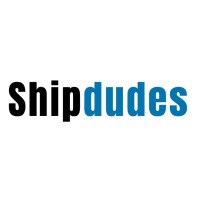Ecommerce 3PLs (third-party logistics providers) offer outsourced logistics services like order fulfillment, warehousing, and inventory management, allowing brands to scale without the need for in-house logistics. They handle everything from picking, packing, and shipping to inventory distribution and returns, leveraging technology to provide real-time insights and automation. With multiple fulfillment centers globally, 3PLs optimize shipping costs and delivery times, while enabling brands to focus on growth rather than logistics.
Key benefits include faster shipping options, global expansion, and seamless integration with ecommerce platforms. Generally speaking, D2C brands look to onboard an ecommerce fulfillment provider when they are at or above $1M in total revenue. This is the point when managing fulfillment and logistics in-house (usually the founders themselves) is too challenging and the benefits offered by a top-tier 3PL partner are well worth it to the business.
Or, if you need an extra hand finding the right 3PL for your specific brand, you can research in-house by using a dedicated directory in Fulfill to find the best match for your brand you can use a matchmaker service like 3PeeL for free.

ShipDudes is a trusted 3PL partner, providing e-commerce brands with reliable, efficient, and scalable fulfillment solutions. We specialize in direct-to-consumer (DTC) and business-to-business (B2B) logistics, ensuring fast and accurate order processing, inventory management, and shipping. Our nationwide fulfillment network allows brands to reach customers quickly, while our dedicated team ensures a hands-on, personalized approach to logistics. At ShipDudes, we believe that great fulfillment goes beyond just moving packages—it’s about delivering a seamless experience that supports your brand’s growth. Whether you need streamlined warehouse operations, customized packaging, or real-time tracking, we provide the expertise and technology to make shipping hassle-free. Partner with ShipDudes and let us handle the logistics while you focus on scaling your business.

EPROLO streamlines your Shopify store’s dropshipping and fulfillment processes by handling product sourcing, printing, packing, and shipping. Easily integrate with your store to manage orders seamlessly and ensure timely delivery to your customers. Scale your business efficiently with EPROLO’s reliable and automated fulfillment services.
CJdropshipping streamlines your Shopify store’s dropshipping and fulfillment processes by handling product sourcing, printing, packing, and shipping. Easily integrate with your store to manage orders seamlessly and ensure timely delivery to your customers. Scale your business efficiently with CJdropshipping’s reliable and automated fulfillment services.

CustomCat streamlines your Shopify store’s print-on-demand and fulfillment processes by handling product printing, packing, and shipping. Easily integrate with your store to manage orders seamlessly and ensure timely delivery to your customers. Scale your business efficiently with CustomCat’s reliable and automated fulfillment services.

Shippo is a multi-carrier shipping software designed to streamline and scale ecommerce shipping. It syncs Shopify orders and provides access to discounted shipping rates from 40+ carriers, including UPS, USPS, and DHL Express. Shippo allows brands to automate workflows, compare rates, print labels in batches, track shipments in real-time, and offer branded shipping experiences, all while improving customer service with easy return label generation.